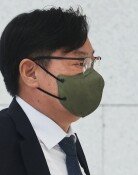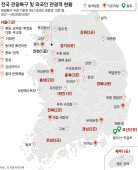IT, sci-tech sectors hail science minister-nominee Choi
IT, sci-tech sectors hail science minister-nominee Choi
Posted March. 15, 2013 07:07,
The domestic information and communication technology sector and science and technology community say Choi Mun-kee, the nominee for science minister, is a strongly driven expert in telecommunications with "more expertise in the fields to be covered by the proposed Future Creation and Science Ministry than anyone else.
Choi built his expertise as a researcher at the state-funded Electronics and Telecommunications Research Institute, a leading think tank for Koreas telecommunication technology. He led the development of telecommunication and Internet technologies for 21 years after graduating from the prestigious Korea Advanced Institute of Science & Technology in 1978. He also participated in the high-profile projects to develop the TDX-1 digital switching system and CDMA technology that are said to have taken the country`s telecommunication technology to the next level. He has 36 patent rights obtained under his name. In short, I`m an engineer, Choi said. I have considerable experience in convergence technology.
He served as director of the electronics think tank under the Roh Moo-hyun administration, playing an active role in implementing the IT 839 Strategy to develop new economic growth engines championed by former Information and Communication Minister Chin Dae-je. Due to Chois background, the stocks of companies in in robotic and wireless mobile Internet technology surged by the daily limit of 15 percent Thursday after his nomination was announced. The Cabinet nominee is said to have a strong drive to achieve his goal once he sets it.
Chung Tai-myeong, a professor at Sungkyunkwan University, said that when Choi was working as a researcher for the think tank, he localized asynchronous transfer mode, or ATM, technology that he learned from the U.S. after years of hard work, adding, He`s the type of person who achieves his goal with a strong drive.
When Choi worked as a professor at the Information and Communications University, he encouraged students receiving full government scholarships to repay the benefits they received from their country and donate to their universities` development funds.
Choi met President Park Geun-hye while working at the Institute for the Future of State, a think tank for her presidential campaign. He was one of her advisers in information and communication technology, and also helped the development of her ideas for creative economy while an adviser to her transition committee.
Government bureaucrats and the domestic information and communication technology industry have welcomed Chois nomination as science minister.
An official at the Korea Communications Commission said, It seems that (the president) judged Choi as the right person to head the proposed ministry because he has a deeper understanding of information and communication technology and research and development policies that the new ministry would be in charge of.
Yet many in the domestic science and technology community expressed worry over Choi being an expert in information and communication technology. Park Seong-hyeon, president of the Korean Academy of Science and Technology, expressed hope that Choi will "pay great attention to promoting science and technology, particularly basic sciences, as well as information and communication technology."
One of Choi`s weaknesses is said to be his lack of public fame. Having spent most of his career as a researcher, he is little known to the public and despite being nearly 2 meters (6-feet-6) tall, he is said to be an introvert.
The Future Creation and Science Ministry will play a pivotal role in the continued growth of the national economy, Choi said after his nomination was announced. I will create new growth engines based on science and information and communications technology.
On President Parks vision of creative economy, he said he will seek to create new industries by converging science and technology with content, culture, and arts and humanities. Open innovation, entrepreneurship and mutual cooperation will provide quality jobs for young people, he added.
nex@donga.com
Headline News
- N. Korea redefines S. Korea as ‘hostile state’ in revised constitution
- Samsung develops graphic DRAM with industry-leading capacity and speed
- Three questions allegedly leaked via text message during Yonsei Univ. essay test
- China to inject 340 trillion won in loans to support real estate sector
- Dodgers beat Mets to take 2-1 lead in NLCS







